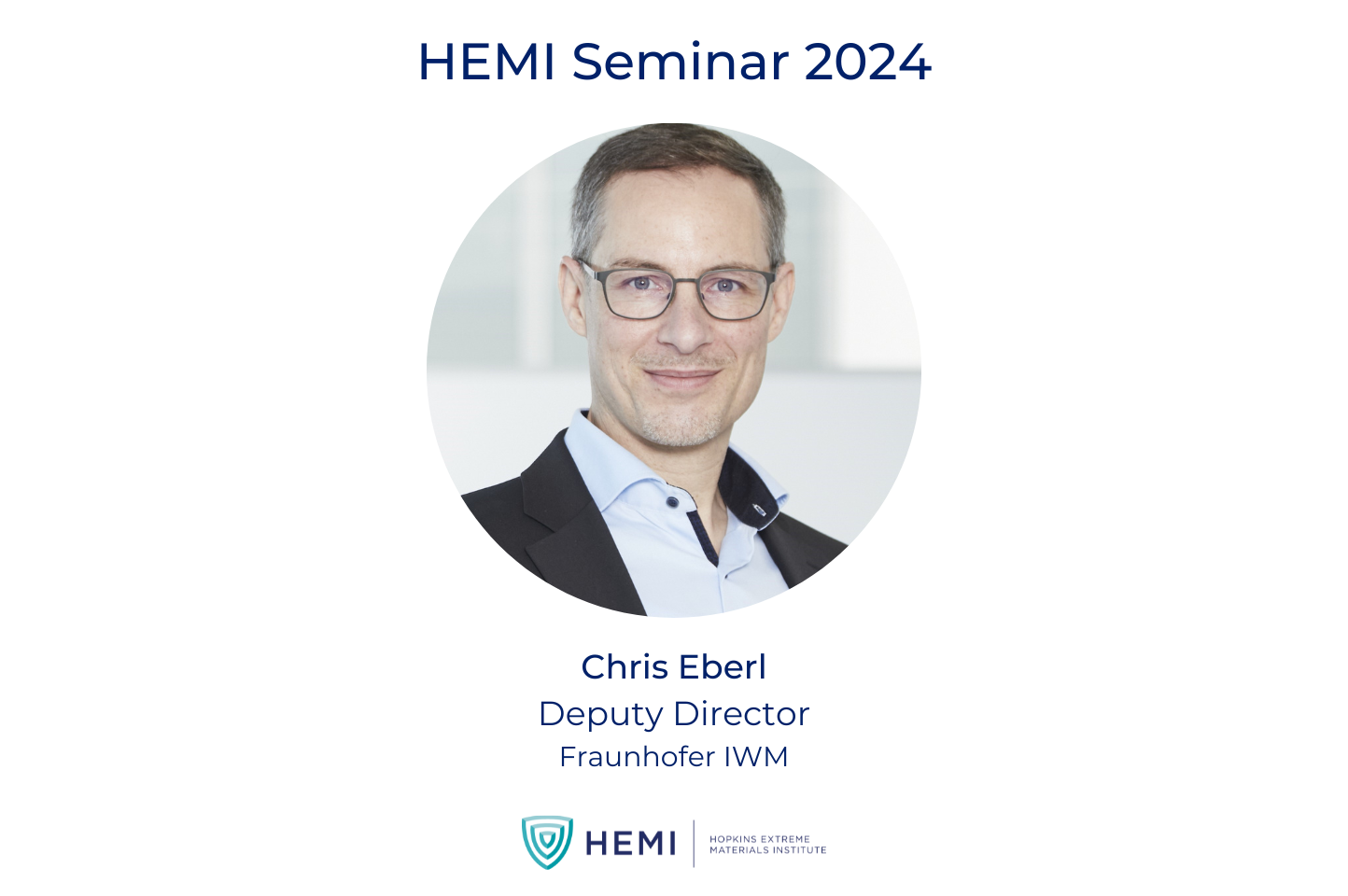June 14, 2024 @ 11:00 am - 12:00 pm
Event Navigation

Please join us for a seminar with Chris Eberl, deputy director of the Fraunhofer IWM. The seminar is titled “The digital transformation in materials science and engineering and how to get the most out of it.”
The seminar will begin at 11:00 AM on Friday, June 14 in Malone Hall G33/35. This seminar will also be available via Zoom. Please contact spreis1@jh.edu for connection information.
Abstract: The digital transformation of Materials Science and Engineering represents a paradigm shift in how we conduct research and brings forth many opportunities as well as challenges. This evolution seeks to expedite materials development, processing, lifetime predictions, and the sustainable practices of reuse and recycling, paving the way for a circular economy. A cornerstone of this paradigm shift is the collaborative creation of a materials knowledge graph grounded in aligned ontologies, coupled with a distributed FAIR data research platform. In contrast to traditional text-based knowledge transmission, knowledge graphs provide a revolutionary approach by interconnecting diverse concepts—such as atomic bonds, chemical composition, crystal structure, grain boundaries, deformation, annealing processes, and mechanical properties—in a format comprehensible to both humans and machines. Especially in an interdisciplinary research environment as in MSE, this is a tremendous game changer, facilitating a seamless exchange of insights. Notably, knowledge graphs have been embraced by leading tech companies like Google, Facebook, Microsoft, Amazon, and LinkedIn, forming the technological backbone for search algorithms and AI applications. This lecture aims to sketch out how an ontology based de-centralized materials data infrastructure can capture the hierarchical dependencies between processes, microstructure, properties, and behavior for advanced materials. Furthermore, the opportunities of exponential growth in a digital infrastructure shall be described, alongside the risks associated with not actively participating and embracing data literacy. In the second part of the lecture, ‘lessons learned’ will be offered, outlining strategies for participation at various levels. How can individual scientists, research groups, and institutions reach low hanging fruits and become more productive will be discussed. Finally, this talk invites you to participate in this joined effort. Building up such a research infrastructure for us all is unprecedented and requires collaboration across borders. Hence, to guide the effort, several initiatives and hubs have been initiated (NFDI, NFDI-MatWerk since 2021 & MaterialDigital since 2019) or will be set in motion soon (Advance Materials Initiative 2025, EU).
Bio:Chris completed his studies in materials science at the University of Stuttgart in 2001 and his PhD in 2004 at the MPI for Metal Research with Eduard Arzt and Oliver Kraft. Till 2007, Chris worked with Kevin Hemker at Johns Hopkins University on nc-metals, thermal barrier coatings and experimental mechanics. In 2007 he was awarded an independent junior research group grant on Microreliability at KIT, Karlsruhe and in 2012 a ‘Fraunhofer Attract’ group at the Fraunhofer IWM.
Since 2014 he chairs the Micro and Materials Mechanics as full professor at the University of Freiburg and is deputy institute director at Fraunhofer IWM. Since 2018, he is scientific coordinator of the Fraunhofer Cluster of Excellence Programmable Materials and board-member of the livMatS Cluster of Excellence at the University of Freiburg since 2019. In 2019 he became board-member of the Plattform MaterialDigital and in 2021 spokesperson of the NFDI-MatWerk. He is Editor in Chief for the Journal ‘Programmable Materials’ of the Cambridge University Press. He serves in different advisory boards.




